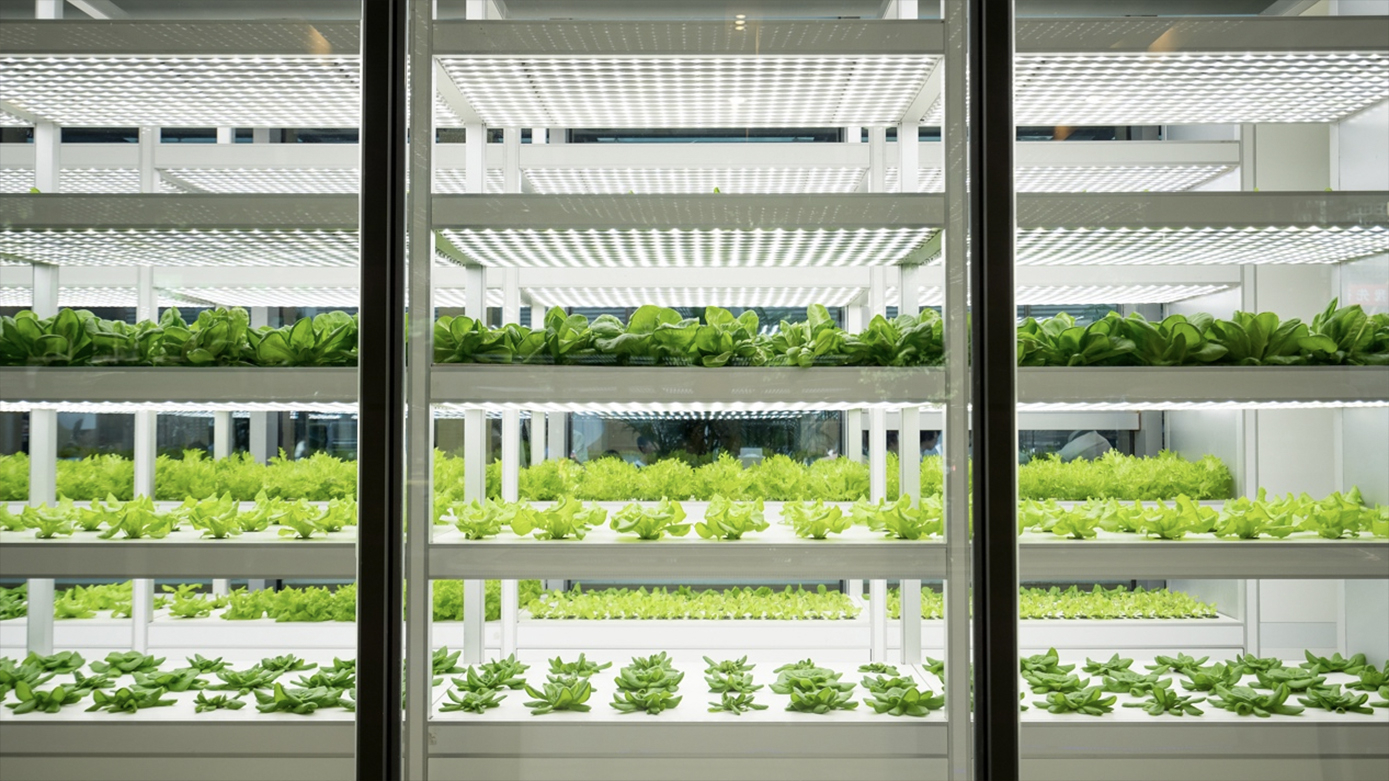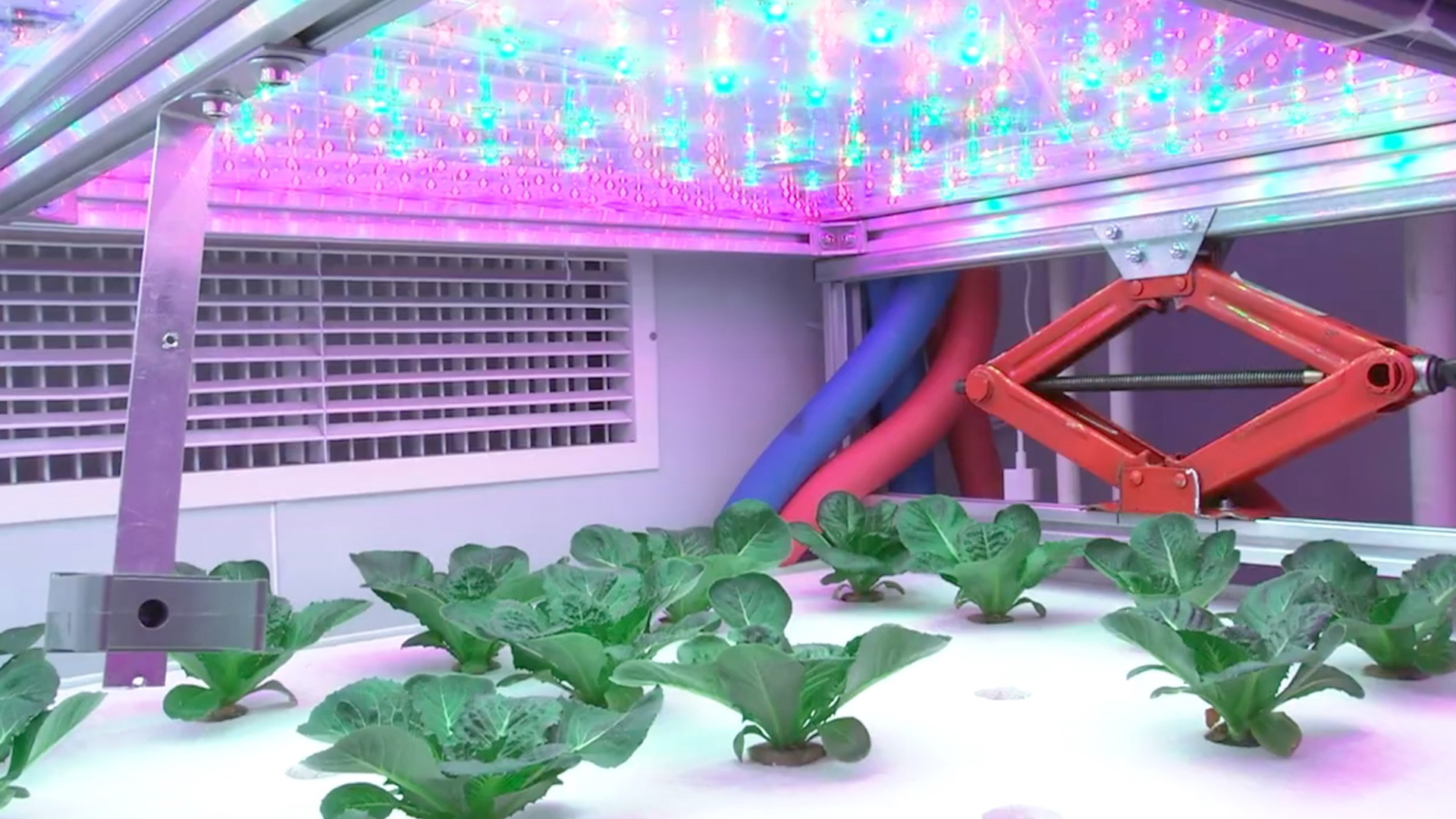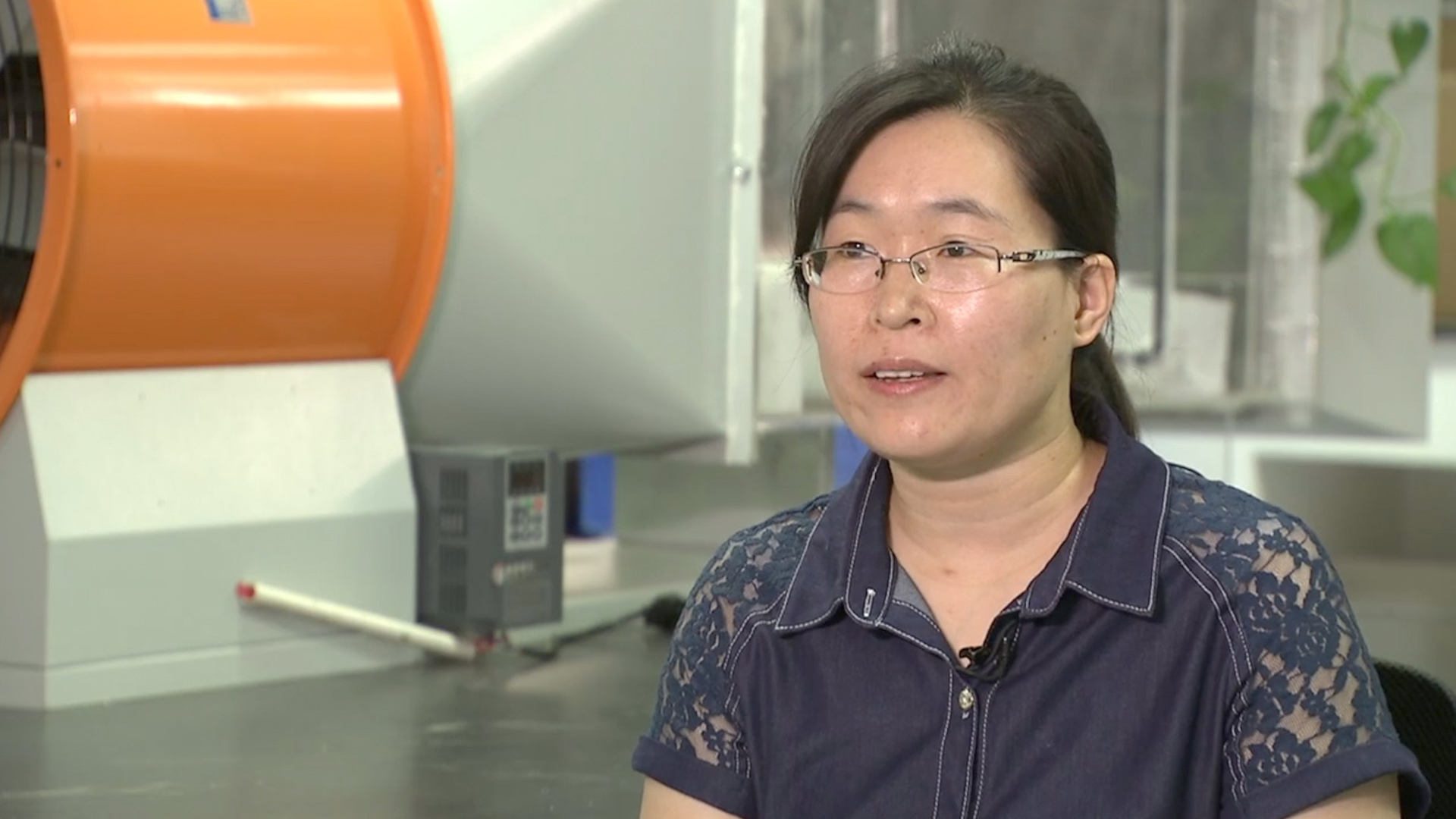01:57

Agriculture in a lab, roots in liquid, lit up red and blue. A scene that used to be found in science fiction films has become a reality, and experts hope this can be expanded on a larger scale in the future. Scientists at the Chinese Academy of Agricultural Sciences (CAAS) are keeping their eyes on this latest study of modern farming, which is all lab-based, and called vertical farming.

A plant factory lab at the Chinese Academy of Agricultural Sciences in Beijing, China. /CGTN Photo
A plant factory lab at the Chinese Academy of Agricultural Sciences in Beijing, China. /CGTN Photo
"This plant factory is a concept that the growth of plants can be precisely regulated in a completely enclosed environment. It enables efficient production of vegetables in a vertical space," says Dr. Tong Yuxin at Institute of Environment and Sustainable Development in Agriculture, CAAS.

Dr. Tong Yuxin, Institute of Environment and Sustainable Development in Agriculture of the Chinese Academy of Agricultural Sciences in Beijing, China. /CGTN Photo
Dr. Tong Yuxin, Institute of Environment and Sustainable Development in Agriculture of the Chinese Academy of Agricultural Sciences in Beijing, China. /CGTN Photo
By saying "vertical space", she means a shelf that can plant vegetables layer by layer.
Lights, temperature, water, oxygen and nutrients, all can be controlled to plants' needs. A small lab or even just a shelf can prevail over a yard of natural farmland or a traditional greenhouse.
But this method comes with high costs as well.
"Construction and operation costs are the reasons that plant factories and vertical farming cannot be popularized right now," Dr. Tong said. "We are trying to reduce the costs from light sources and other conditions."
Dr. Tong said that vertical farming has already become the latest stage of modern farmland and is ideal for remote areas or metropolitan cities.
China, Japan, South Korea and many other Asian and European countries have successfully planted lab vegetables and made them a delicious part of meals.
And it may be just a matter of time before they make their way to your table.